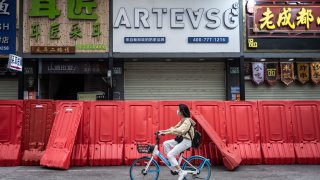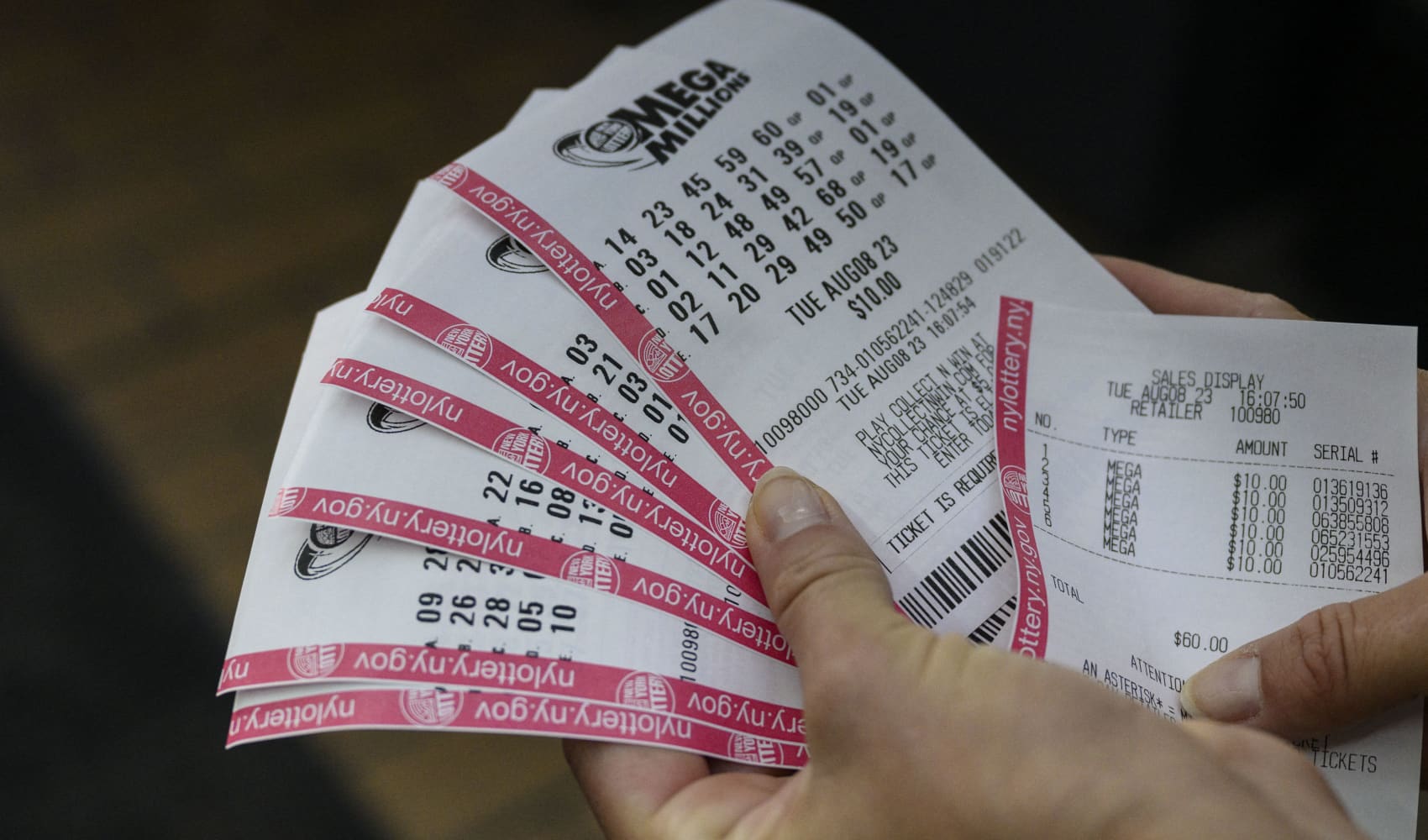
- Schools in eight of 11 districts in the city of Guangzhou moved classes online for most students as of Thursday.
- It was not immediately clear to what extent the latest business restrictions affected the ability of factories to operate.
- For businesses traveling to and from China's capital city, getting a "pop-up window" on Beijing's health code app is their greater source of worry.
BEIJING — Covid infections are surging in the capital of China's export-heavy Guangdong province, raising concerns of another drag on the national economy.
Schools in eight of 11 districts in the city of Guangzhou moved classes online for most students as of Thursday. In the last few days, more parts of the city have ordered people to stay home, and non-essential businesses to close.
"As things stand, it is hard to tell whether Guangzhou will repeat the experience of Shanghai in spring this year," Nomura's chief China economist Ting Lu and a team said in a note late Wednesday. "If Guangzhou repeats what Shanghai did in spring, it will lead to a new round of pessimism on China."
Earlier this year, the metropolis of Shanghai locked down for about two months and broader Covid controls resulted in a second-quarter national GDP that grew by only 0.4%, according to official figures. GDP bounced back in the third quarter with 3.9% growth, but then exports unexpectedly dropped in October.
It was not immediately clear to what extent Guangzhou's latest business restrictions affected the ability of factories to operate. Many manufacturers are located outside the city but in the same province.
State-owned automaker GAC Group said its manufacturers in Guangzhou were operating normally as of Thursday morning. "The epidemic has not caused substantial impact," the company said in a statement.
Money Report
In just a week, the number of Covid infections with symptoms in Guangdong has multiplied five times to 500 as of Wednesday. During that time, infections without symptoms surged seven times to about 2,500 cases.
The latest outbreak prompted the American Chamber of Commerce in China to postpone an event in Guangzhou, which was already delayed from September, Michael Hart, president of the chamber, said Thursday. He expects two more of the chamber's events in the city this year will be postponed.
"These travel impacts are hurting the abilities of local governments to pitch for investments," Hart said, noting such investments were not lost but delayed.
"I've canceled more travel than I've actually been able to do," he said.
Late fall is a popular time for conferences and business travel in China.
Notably, Guangzhou has indefinitely delayed its auto show that was set to kick off next week. The country's biggest auto show that Beijing was supposed to host earlier this year was never rescheduled.
More travel restrictions
"Probably a bigger concern [than getting sick] is what does [travel] do to your Beijing health code and can you get back?" Hart said, referring to a government smartphone app for tracking Covid exposure.
The city requires anyone entering a shopping mall, taxi or public space to use the app. The venue can deny entry if the app shows the individual does not have a negative Covid test result from within the last three days — or bears a "pop-up window" that's supposed to indicate suspected contact with a Covid infection.
The pop-up window prevents people from entering Beijing.
Its appearance has become so frequent and somewhat unpredictable that a Chinese commentator said in a widely shared video that every business trip outside of Beijing was a choice between family and work. The video was removed from public view by Thursday morning.
The Beijing health code app's pop-up window also affects the mobility of people within the capital city, which has reported a growing number of infections over the last several days.
"In Beijing, you just assume a certain percentage of the workforce is going to have pop-up window issues," Hart said, noting virus testing requirements for some office buildings has increased to once every 24 hours. "Instead of getting looser it's getting tighter in some areas."






